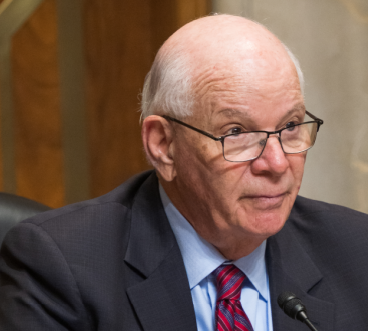Madam President, 12 years ago this Tuesday, Russian tax lawyer Sergei Magnitsky died in Moscow at the hands of prison guards who, instead of treating him for the acute illness that his torturous, year-long detention provoked, beat him for over an hour. He was found dead in his cell shortly thereafter. His “crime” was exposing the largest tax fraud in Russian history, perpetrated by government officials. He was 37 years old and left a loving family and many friends.
At the Helsinki Commission, which I chair, we had heard of Sergei’s plight months earlier and we were saddened and outraged that such a promising life had been cut short and that so few expected his murderers to be held to any account.
Impunity for the murder of journalists, activists, opposition politicians, and now a simple, honest citizen was, and remains, a depressing cliché in Russia under Vladimir Putin’s rule while his regime often ruthlessly punishes people for minor infractions of the law. For those on the wrong side of the Kremlin, the message is clear — and chilling. Even the most damning evidence will not suffice to convict the guilty nor will the most exculpatory evidence spare the innocent.
The need for justice, in Russia, in this specific case does not diminish with the passage of time. Moreover, the “doubling down” on the cover-up of Sergei’s murder and the massive tax heist he exposed implicates a wider swath of Russian officials with the guilt of this heinous crime. It does not need to be this way, however; nor is it ever too late for a reckoning in this case in the very courtrooms that hosted the show trials that ultimately led to Sergei’s death and the obscenity of his posthumous conviction.
As somber as this occasion is, there is reason for hope. Vladimir Putin will not rule Russia forever and every passing day brings us closer to that moment when someone new will occupy his post. Who that person will be and whether this transition will usher in a government in Russia that respects the rights of its citizens and abides by its international commitments remains unclear. I hope it does. A Russian government that returns to the fold of responsible, constructive European powers would increase global security, enhance the prosperity of its own citizens and trading partners, and bring new vigor to tackling complex international challenges such as climate change.
Sergei’s work lives on in his many colleagues and friends who are gathering in London this week to celebrate his life and to recognize others, like him, who seek justice and peace in their countries, often facing, and surmounting, seemingly impossible obstacles. All too often, they pay a heavy price for their courageous integrity.
Sergei’s heroic legacy is exemplified in the global movement for justice sparked by his death, and in the raft of Magnitsky laws that began in this chamber and have now spread to over a dozen countries, including allies like Canada, the United Kingdom, and the European Union. Even as these laws help protect our countries from the corrupting taint of blood money and deny abusers the privilege of traveling to our shores, they also remind those who suffer human right abuses at the hands of their own governments that we have not forgotten them.
Sergei Magnitsky is a reminder to all of us that one person can make a difference. In choosing the truth over lies, and sacrifice over comfort, Sergei made a difference and will never be forgotten.
Fifty-five years ago, Senator Robert F. Kennedy addressed the National Union of South African Students and spoke about human liberty. He spoke about freedom of speech and the right “to affirm one’s membership and allegiance to the body politic – to society.” He also spoke about the commensurate freedom to be heard, “to share in the decisions of government which shape men’s lives.” And he stated that government “must be limited in its power to act against its people so that there may be … no arbitrary imposition of pains or penalties on an ordinary citizen by officials high or low”. Senator Kennedy went on to say,
Each time a man stands up for an ideal, or acts to improve the lot of others, or strikes out against injustice, he sends forth a tiny ripple of hope, and crossing each other from a million different centers of energy and daring, those ripples build a current which can sweep down the mightiest walls of oppression and resistance.
Madam President, Sergei Magnitsky stood up for an ideal. He acted to improve the lot of others. He struck at injustice. He was – and remains – a ripple of hope. On this sad anniversary of Sergei Magnitsky’s murder, let us all recommit ourselves to helping those in Russia, and around the world, who seek their rightful share in the governance of their own countries and who deserve the confidence of doing so without fear of harm. If we do this, Sergei will not have died in vain.
I am confident that one day, there will be a monument in stone and bronze to Sergei in his native Russia. Until that day, the laws that bear his name will serve as his memorial.





